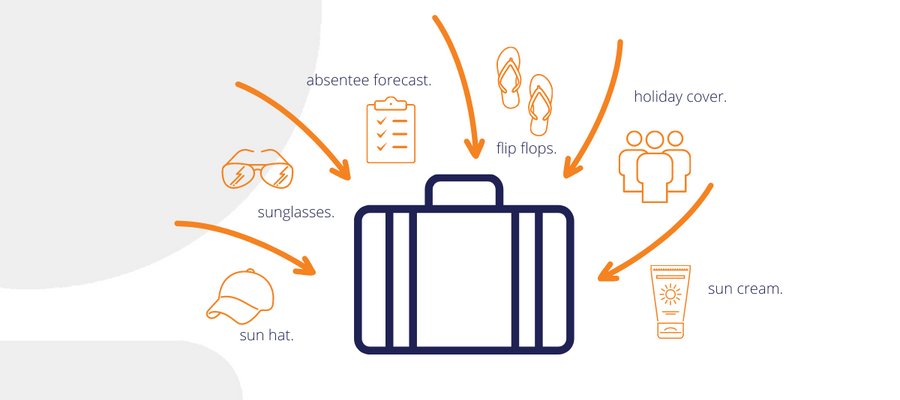Typically, most employees will want to take their annual leave over summer and Christmas and it could leave your business understaffed with little cover.
It’s a great idea to plan your holiday cover well in advance, so you have plenty of time to prepare for the rush of annual leave requests.
Having a documented and well-organised process for requesting annual leave is the first step in helping you to manage the influx of annual leave requests around summer. Here are four things to take into consideration:
Restrictions: Do you plan to restrict your employee's annual leave allowance at certain times of the year? For example, if you run a retail business you may ask employees to not take leave around sale weekends if this is one of your busiest periods.
Notice Period: Do you require a set amount of time to check through and approve annual leave requests? If so, you could consider asking your employees to provide 1 weeks’ notice for short-term requests and 2 weeks for longer periods of leave. By doing this, you are allowing plenty of time to find cover which will take the pressure off.
A maximum number of employees on leave: Make sure to consider how many employees you can have on annual leave at any one time for your business to still function. If you have to restrict the number of employees on annual leave at any one time, it might be worth highlighting a ‘first come, first served’ rule in your employee handbook for holiday requests.
Hire seasonal staff: An additional layer of security for your business would be to look at hiring seasonal staff – this is where we come in!
1. Plan ahead
Start your planning early so you can get roles advertised in advance. This means that you’ll be up against fewer competitors who need last-minute cover. It is important to decide what is best for your business’s needs, whether it be contracted or casual staff. The further in advance, you plan, the more time you’ll have in the training process. You could even coordinate a start date for multiple new employees rather than one by one meaning you’ll save time, money, and resources for your business.
2. Don’t lose touch
If you keep a record of previous seasonal employees, schedules may align meaning they can work roughly the same times next year. Re-hiring brings many positives such as familiarity with your business, operations, and current team members
3. Advertise appropriately
When advertising that your business is hiring for seasonal roles, it is important that you convey exactly what you need in the job advert, so you attract the right candidates to apply.
4. Have a contingency plan
If you are planning on hiring seasonal workers to assist with holiday cover, it would be useful to train them for various roles and tasks. By doing this you are increasing the level at which your holiday staff can cover across your business. This is especially useful when permanent employees are unable to work due to sudden illness, COVID-19, or unforeseen circumstances.
If you are unsure what to include in a contingency plan, check out our ‘Creating a COVID contingency plan’ here.
Looking for help with your holiday cover? Thrive offers a solution for your business with replacement, seasonal and cover staff available at short notice or in the long term. To find out how we could help your business today, please don’t hesitate to get in touch.

